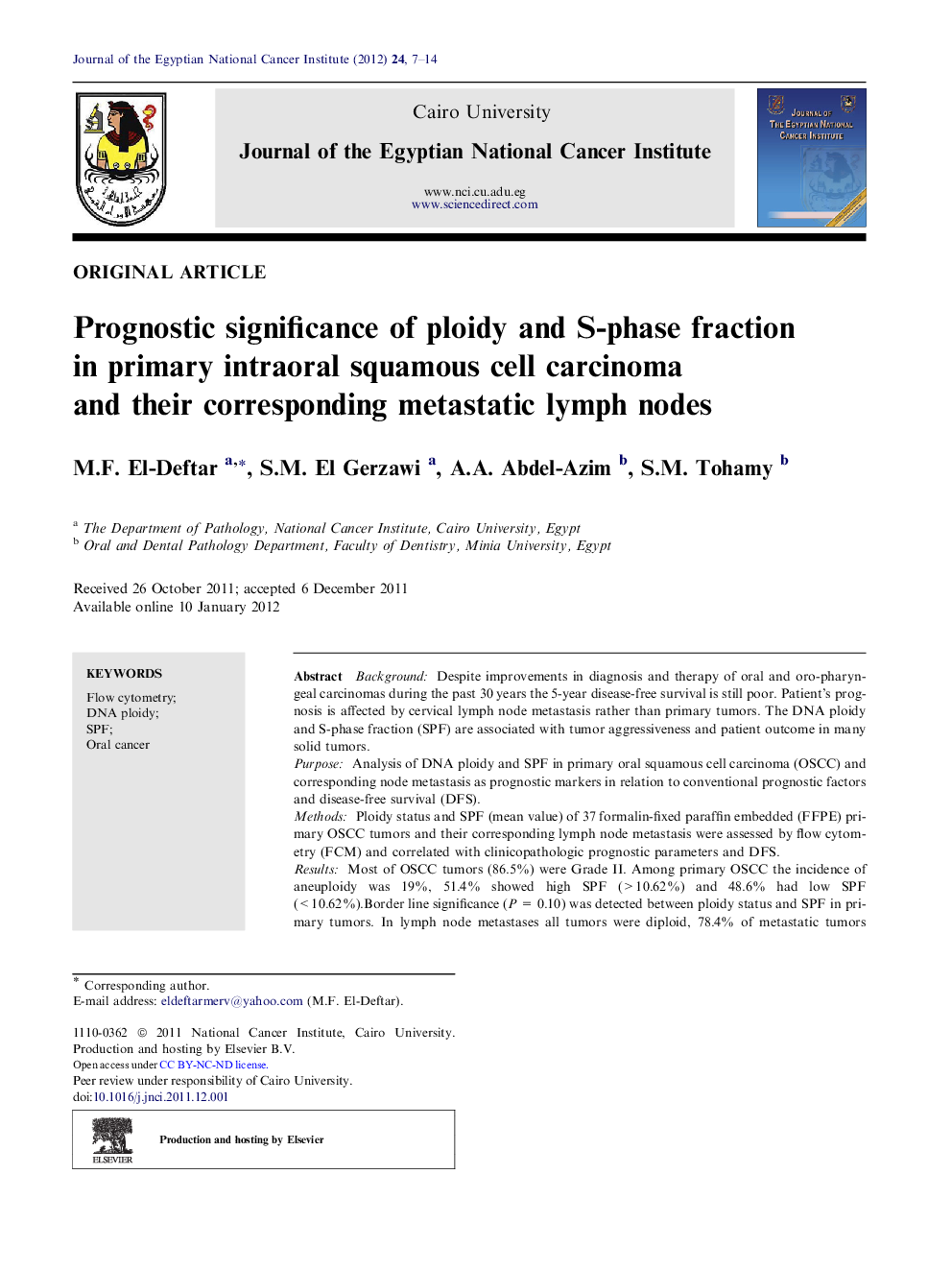| Article ID | Journal | Published Year | Pages | File Type |
|---|---|---|---|---|
| 3989049 | Journal of the Egyptian National Cancer Institute | 2012 | 8 Pages |
BackgroundDespite improvements in diagnosis and therapy of oral and oro-pharyngeal carcinomas during the past 30 years the 5-year disease-free survival is still poor. Patient’s prognosis is affected by cervical lymph node metastasis rather than primary tumors. The DNA ploidy and S-phase fraction (SPF) are associated with tumor aggressiveness and patient outcome in many solid tumors.PurposeAnalysis of DNA ploidy and SPF in primary oral squamous cell carcinoma (OSCC) and corresponding node metastasis as prognostic markers in relation to conventional prognostic factors and disease-free survival (DFS).MethodsPloidy status and SPF (mean value) of 37 formalin-fixed paraffin embedded (FFPE) primary OSCC tumors and their corresponding lymph node metastasis were assessed by flow cytometry (FCM) and correlated with clinicopathologic prognostic parameters and DFS.ResultsMost of OSCC tumors (86.5%) were Grade II. Among primary OSCC the incidence of aneuploidy was 19%, 51.4% showed high SPF (>10.62%) and 48.6% had low SPF (<10.62%). Border line significance (P = 0.10) was detected between ploidy status and SPF in primary tumors. In lymph node metastases all tumors were diploid, 78.4% of metastatic tumors revealed low SPF and only 21.6% showed high SPF. There was a statistically significant correlation (p = 0.02) between site of tumors and DFS and a highly statistically significant correlation (p = 0.01) between SPF of primary tumors and DFS.ConclusionsHigh SPF of primary OSCC tumors assessed by FCM was significantly associated with decreased disease free survival rates. DNA ploidy showed no relationship to bad prognostic indicators in either primary OSCC or their metastatic tumors.
